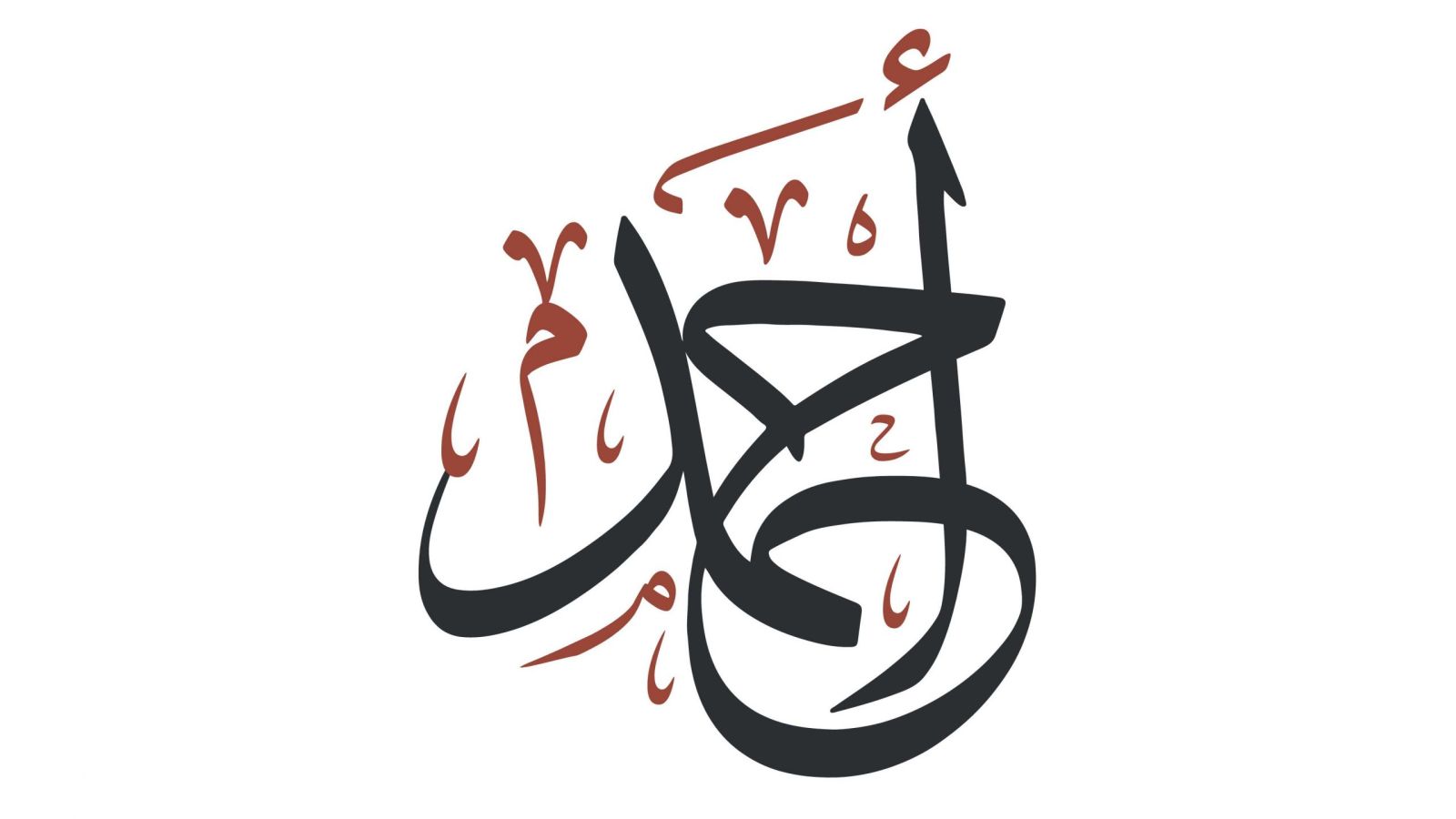Questions on Ramaḍān
The Permanent Committee for Islamic Research and Fatāwá


Do not fast until you see the new moon, and do not stop fasting until you see it, and if it is concealed by clouds them count out (the thirty days of Shaʿbān) for it.
Determining the Beginning of Ramaḍān
[Q]: Is it permissible to rely upon astronomical calculations in determining the start of Ramaḍān?
[A] : “The Prophet (ﷺ) ordered the Muslims saying:
“Do not fast until you see the new moon, and do not stop fasting until you see it, and if it is concealed by clouds them count out (the thirty days of Sha’baan) for it. “1
And he (ʿalayhis-ṣalātu was-salām) said:
“We are an illiterate nation that neither writes nor calculates (i.e. using astronomical calculations). The month is either like this, or this. Meaning: Sometimes it is of twenty-nine days, and sometimes it is of thirty.”2
And it is established in the Ṣaḥīḥ (no.1909) of al-Bukhārī from Abū Hurayrah (raḍī Allāhu ʿanhu) that the Prophet (ṣallallāhu ʿalayhi was salām) said: “Fast when it (the moon) is seen, and cease fasting when it is seen, so if is concealed by clouds then complete thirty days of Sha’baan. ” And he (ﷺ) also said:
“Do not fast until you have seen the moon, and if it is concealed by clouds then complete thirty days. “3
There are plenty of aḥādīth in this connection, and all of them point towards the obligation of actually sighting the moon, or if unable, then to complete the number of days in the absence of observing it. These narrations also point towards the impermissibility of using astronomical calculations in this regard. And Shaykh al-Islām Ibn Taymīyyah has actually stated an ijmāʿ (consensus) from the People of Knowledge about the impermissibility of relying upon astronomical calculations in this regard – and this is the truth about which there is no doubt.4 And with Allāh alone is the ability.”5
Brushing One’s Teeth Whilst Fasting
[Q]: Is it permissible to use a Miswāk to brush one’s teeth, whilst fasting. And is it permissible to use toothpaste as well? What if some blood appears whilst I brush my teeth, does this invalidate my fast?
[A]: “There is no problem in cleaning one’s teeth using either water, Miswāk or toothbrush, whilst fasting. Some have held it to be makrūh (detested) to use a Miswāk whilst fasting, since it changes the smell of a person’s breath. However, what is correct is that it is recommended to use a Miswāk in the beginning and the end of the day, since doing so does not change the odour, rather it just cleanses the mouth from impurities and small pieces of food that become lodged in one’s teeth. As regards to the use of toothpaste, then using it is makrūh (detested), since it contains a distinctive taste and flavour which may then get mixed with one’s saliva and then be swallowed. Thus, whosoever needs to use it should do so after taking the suḥūr (the pre-dawn meal), before the time of Fair and fasting begins. However, if one can safeguard allowing the toothpaste and saliva to be mixed then swallowed, then there is no harm in using such toothpaste. If, whilst cleaning one’s teeth with water, Miswāk or a toothbrush – a small amount of blood flows out, then this does not break the fast, and Allāh knows best.”6
Concerning the Tarāwīḥ Prayer
[Q]: Some people insist that there is an ijmāʿ (consensus) from the four well known Imāms – Abū Ḥanīfah, Mālik, ash Shaafi’ee and Aḥmad Ibn Ḥanbal (rahimahumullāh), on praying only twenty rakʿahs for Tarāwīḥ. Is this correct?
[A]: “This is an erroneous claim. This is what has been stated in the Hanafī books of fiqh (jurisprudence), for we do not find any book that can be authentically ascribed to Abū Ḥanīfah (d.150H) (raḥimahullāh). Rather, what is apparent from looking into al-Muwaṭṭa of Imām Muḥammad (one of the main students of the Abū Ḥanīfah) is that Abū Ḥanīfah’s madh′hab (school of thought) was to pray eleven rakʿahs.
Imām Muḥammad includes a chapter in al Muwaṭṭa (p.110), stating: “Chapter: Establishing the Night Prayer in the month of Ramaḍān, and the virtues contained in it.” Under this chapter, he relates four aḥādīth. The first, third and fourth narrations do not make mention of any specified number of rakʿahs for the Tarāwīḥ Prayer, rather they just mention the excellence of establishing Prayer in congregation and the excellence of the night Prayer in Ramaḍān. However, in the second narration eleven rakʿahs is mentioned. Then Imām Muḥammad said (p.111): “And we take all of this.” … Thus, he has shown that his madh′hab is eleven rakʿahs, and this can only be the madh′hab of Imām Abū Ḥanīfah (raḥmatullāhi ʿalayhi) as well.
Al-Shāfiʿī (d.204H) (raḥimahullāh) said:
“There is no limit to its maximum number since it is an optional Prayer. Thus, if the standing is lengthened, whilst the number of prostrations shortened (i.e. the number of rakʿahs are fewer), then that is good and that is what is most beloved to me. However, if the number of prostrations and bowings are increased (i.e. the number of rakʿahs are increased), then this is also good. “7
So it is affirmed that Imām ash Shaafi’ee (raḥimahullāh) does not advocate restricting the number of rakʿahs to twenty. Rather, he gives preference for there to be fewer rakʿahs and an increase in the length of standing.
Imām Aḥmad Ibn Ḥanbal (d.241H) has approved of eleven rakʿahs as well as twenty – as Shaykh al-Islām Ibn Taymīyyah says in al-Ikhtiyaaraatul-’Ilimiyyah (p.38) and Shāḥ Waliyyullāh says in al-Misriyyah (1/174) and al-Mūsáffā (1/177).
Imām Mālik (d.179H) (raḥimahullāh) also supports eleven rakʿahs, as Shaykh al Islām Ibn Taymīyyah mentioned in al Ikhtiyaraat (p.38) and as Jalālud-Dīn as-Suyootee mentions in al-Hāwī lil Fatāwá (p.350), where he said: al-Joorī, one of our companions said, from Mālik who said: ‘”That which ʿUmar Ibn al-Khaṭṭāb gathered the people upon is more beloved to us, and that was eleven rakʿahs, and that was the prayer of Allāh’s Messenger (ﷺ).” It was said to him: Eleven rakʿahs with the Witr So he said: Yes, and thirteen is close.” Then he said: “I do not know from where they have introduced these numerous rukūʿs (bowings).”8
Praying eleven rakʿahs is based upon a number of authentic narrations, from them:
- What al-Bukhārī relates in his Ṣaḥīḥ (no.2013) from Abū Salamah Ibn ’Abdur-Raḥmān who relates that he asked ’Aa‘ishah (raḍīyallāhu ’anhaa): How was the Prayer of the Prophet (sallallābu ʿalayhi wa-sallam) in Ramaḍān? So she said: “Allāh’s Messenger (ﷺ) did not used to pray more than eleven rakʿahs during Ramaḍān or in other than Ramaḍān. He would pray four rakʿahs, and do not ask about their beauty and length. Then he would pray another four, and do not ask about their beauty and length. Then he would pray three (witr).”
- Jābir (raḍī Allāhu ʿanhu) said: “Allāh’s Messenger (ﷺ) led us in the month of Ramaḍān with eight rakʿahs and witr. Then on the following night, we gathered in the mosque and hoped that he would come out, and we continued in that state until morning. Then we entered our houses, so we said: O Messenger of Allāh, we gathered in the mosque last night hoping that you would pray with us. So he said: “I feared that it would become prescribed (i.e. obligatory) for you.”9
- Imām Mālik relates in his al-Muwaṭṭa (no. 248): From Muḥammad Ibn Yūsuf, from as-Saa‘ib Ibn Yazīd who said: “ʿUmar Ibn al-Khaṭṭāb ordered ’Ubayy Ibn Ka’b and Tamīm al-Dārī to lead the people in Prayer with eleven rak’abs. And the reciter would recite some hundreds of Verses until one of us would lean upon a stick because of the length of standing, and we had not used to finish until the appearance of Fajr.”10
- Ubayy Ibn Ka’b came to Allāh’s Messenger (ﷺ) and said: O Messenger of Allāh, something happened with me last night – meaning in Ramaḍān. So he said: And what was that ’Ubayy? He said: “Some women in my house said, we do not recite the Qurʾān, so can you lead us in Prayer? So I lead them in eight rakʿahs and prayed the witr.” And this was a Sunnah of his approval since he remained quiet and he did not say anything.11
So all this goes to show that insisting that there is a consensus on praying only twenty rakʿahs for Tarāwīḥ – claiming this to be the only view of all the four well-known Imāms – is not only incorrect, but is against the established evidence. As regards a detailed discussion regarding the whole issue, then this is not possible here, nor is it the place to discuss the correctness, or merits, of praying twenty rakʿahs over eight, or vice-versa. Rather, one can find such discussions in the relevant chapters in the books of fiqh, whilst remembering that: “Difference in opinion must not be a source of obstinacy nor anger.”12
What Should I Do in Ramaḍān
[Q]: What should a fasting person do, and what is obligatory upon him?
[A]: “The fasting person must increase in obedience to Allāh, and to keep away from all the prohibited matters. It is obligatory upon the fasting person to safeguard the obligatory duties and to distance himself from all the prohibitions. So he should pray the five daily Prayers in their correct times and in congregation, and abandon lying, backbiting, cheating, dealing in usury, and all other prohibited matters. The Prophet (ﷺ) said: “Whosoever does not abandon falsehood in speech and action, then Allāh The Almighty and Majestic has no need that he should leave his food and drink. “13 14
Eye Drops and Vomiting
[Q]: Is it permissible to use eye or ear-drops whilst fasting, or does it invalidate the fast? And does vomiting also break the fast?
Is it permissible to use eye or ear-drops whilst fasting, or does it invalidate the fast? And does vomiting also break the fast?
[A]: “Whosoever uses eye or ear drops for medicinal purposes, then this does not invalidate their fast, and this is the correct opinion. This is because such drops are not termed as being food or drink – neither are they called so by convention nor by Islamic terminology – and this is because such drops are administered through those places which food and drink are not administered. However, if taking such drops could be delayed until the night, then this would avoid entering into any difference of opinion. Similarly, whosoever vomits whilst fasting, then this does not invalidate their fast. This is because Allāh does not burden a soul with more than it can bear, and also that the Sharīʿah (Divinely Prescribed Islamic law) is built upon facilitating ease and removing hardships, as Allāh – the Most High – said:
Also, the Prophet (ﷺ) said:
“Whosoever has an attack of vomiting then no atonement is required of him, but whoever intentionally vomits, then let him atone for it. “15 16
Endnotes:
- Related by al-Bukhārī (no. 1906) and Muslim (no. 1080), from Ibn ʿUmar (raḍī Allāhu ʿanhu).
- Related by al-Bukhārī (no. 1913), front Ibn ʿUmar (raḍī Allāhu ʿanhu).
- Related by al-Bukhārī (no. 1907), from Ibn ʿUmar.
- Refer to Fat′h al-Bārī (4/159) of al-Ḥāfiẓ Ibn Hajr.
- Answered by Shaykh ʿAbd al-ʿAzīz Ibn Bāz in Fatāwás-Siyaam (p.13).
- Answered by Shaykh Ibn Jibrīn in Fatāwás Siyaam (p.40).
- Quoted by Ibn Naṣr al-Marwazī in Qiyaamul-Layl (p.92).
- Tanqeedus-Sadeed bi Risaalati Ijtihaad wat-Taqlīd (p.266-268) of Shaykh Badee’ud-Dīn as-Sindee.
- Related by Ibn Naṣr (p.90) and others. Al-Ḥāfiẓ Ibn Hajr indicated in Fat′h al-Bārī (3/10) that the narration is strong.
- Shaykh al-Albānī says in Ṣalātut-Tarāwīḥ (p.4)): “And its chain of narration is Ṣaḥīḥ Jiddan (extremely authentic).”
- Ḥasan: Related by Ibn Naṣr al-Marwazī (p.90). It was authenticated by Shaykh al-Albānī in Ṣalātut-Tarāwīḥ (p.68).
- From Aadaahul-Khilāf (p.7) of Shaykh Ṣāliḥ al Humaid.
- Related by al-Bukhārī (4/99). from Abū Hurayrah (raḍī Allāhu ʿanhu).
- Answered by Shaykh Ibn al-ʿUthaymīn in Haqīqat al-Siyaam (pp.24-25).
- Ṣaḥīḥ: Related by Abū Dāwūd (2/310). It was authenticated by Shaykh al-Islām Ibn Taymīyyah in Fatāwás Siyaam (p.14).
- Answered by the Committee of Major Scholars in Fatāwás-Ṣiyām (p.44).
Most Popular: Last 30 Days

















